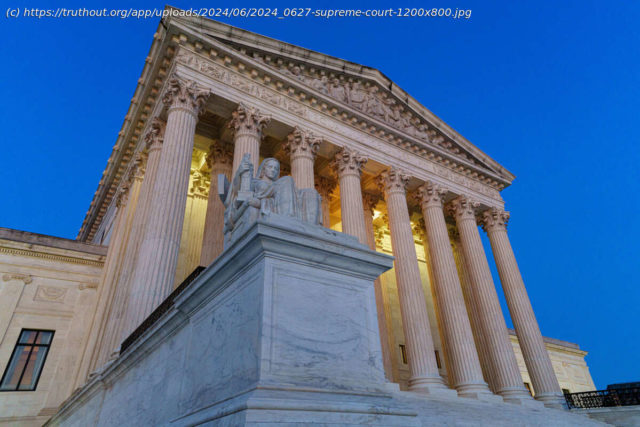Watchdogs warn the decision could have implications that extend beyond the Securities and Exchange Commission.
The U.S. Supreme Court on Thursday ruled along ideological lines that the Securities and Exchange Commission cannot use in-house legal proceedings to civilly penalize fraudsters, a decision that could strike a devastating blow to federal agencies’ ability to fight corporate crime.
In the 6-3 decision, the high court’s conservative supermajority deemed the SEC’s in-house proceedings unconstitutional, siding with the U.S. Chamber of Commerce and other big business-aligned organizations that weighed in on the side of the plaintiff — conservative radio host and hedge fund manager George Jarkesy, who was accused by the SEC of defrauding investors and ordered to pay a $300,000 civil penalty.
Jarkesy argued the SEC proceedings violated his Seventh Amendment right to a jury trial. But as Vox’s Ian Millhiser observed, “the Constitution treats civil trials very differently from criminal proceedings.”
“While the Sixth Amendment provides that ‘in all criminal prosecutions’ the defendant is entitled to a jury trial,” Millhiser wrote, “the Seventh Amendment provides a more limited jury trial right, requiring them ‘in suits at common law.’”
Millhiser argued that with its ruling in SEC v. Jarkesy, the high court effectively “lit a match and tossed it into dozens of federal agencies.”
The Supreme Court’s three liberal judges dissented from Thursday’s decision, with Justice Sonia Sotomayor denouncing the ruling as “a power grab” with potentially “momentous consequences.”
“Today’s ruling is part of a disconcerting trend: When it comes to the separation of powers, this court tells the American public and its coordinate branches that it knows best,” Sotomayor wrote, warning that the decision “means that the constitutionality of hundreds of statutes may now be in peril, and dozens of agencies could be stripped of their power to enforce laws enacted by Congress.
Start
United States
USA — Financial Critics Decry SCOTUS Ruling in SEC Case as Victory for the Wealthy...






